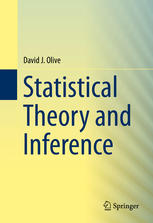

Most ebook files are in PDF format, so you can easily read them using various software such as Foxit Reader or directly on the Google Chrome browser.
Some ebook files are released by publishers in other formats such as .awz, .mobi, .epub, .fb2, etc. You may need to install specific software to read these formats on mobile/PC, such as Calibre.
Please read the tutorial at this link: https://ebookbell.com/faq
We offer FREE conversion to the popular formats you request; however, this may take some time. Therefore, right after payment, please email us, and we will try to provide the service as quickly as possible.
For some exceptional file formats or broken links (if any), please refrain from opening any disputes. Instead, email us first, and we will try to assist within a maximum of 6 hours.
EbookBell Team

0.0
0 reviewsThis text is for a one semester graduate course in statistical theory and covers minimal and complete sufficient statistics, maximum likelihood estimators, method of moments, bias and mean square error, uniform minimum variance estimators and the Cramer-Rao lower bound, an introduction to large sample theory, likelihood ratio tests and uniformly most powerful tests and the Neyman Pearson Lemma. A major goal of this text is to make these topics much more accessible to students by using the theory of exponential families.
Exponential families, indicator functions and the support of the distribution are used throughout the text to simplify the theory. More than 50 ``brand name" distributions are used to illustrate the theory with many examples of exponential families, maximum likelihood estimators and uniformly minimum variance unbiased estimators. There are many homework problems with over 30 pages of solutions.